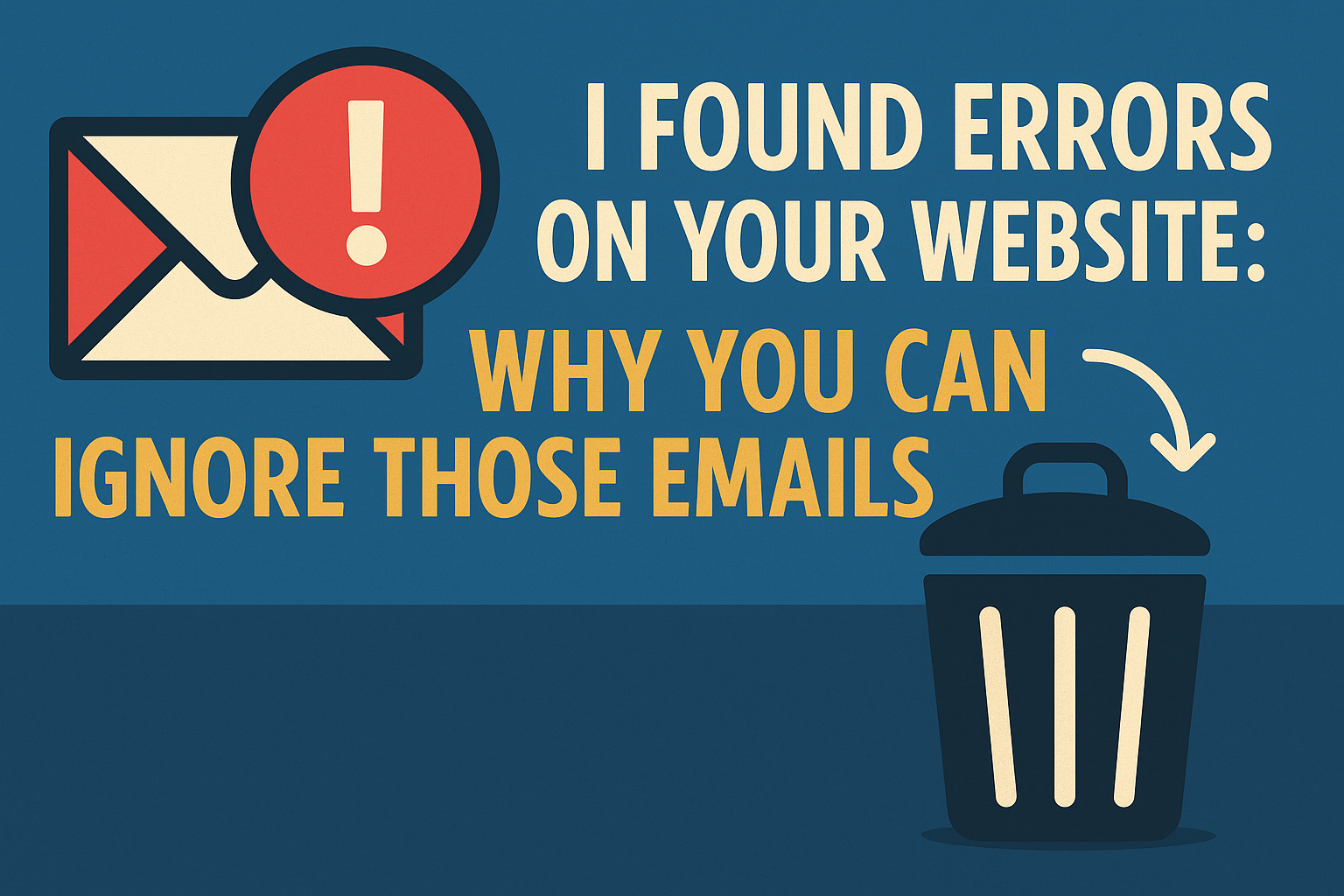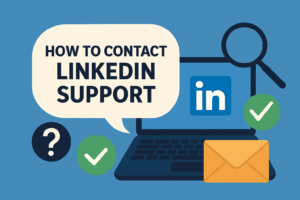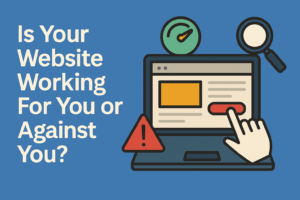
If you’re a small business owner, chances are you’ve received one of those ominous emails claiming:
“Your website has critical errors hurting your rankings. We can fix them today.”
Or maybe:
“I was browsing your website and noticed it’s not mobile-friendly and has several issues.”
Sound familiar? You’re not alone. These messages are everywhere — and they’re almost always spam.
Let’s break down what these emails are really about, why you shouldn’t panic, and how to stay informed about your actual website health.
❗ What These Emails Typically Say
These messages are usually vague, alarming, and push for a sense of urgency. Common phrases include:
- “Your site has broken links or security vulnerabilities.”
- “Your site is not showing up on Google.”
- “I ran a free SEO report and saw red flags.”
- “Click here to fix your ranking issues.”
Most of them come from unknown Gmail addresses or companies with no verifiable identity.
🤔 Why They’re Spam (Not a Helpful Tip)
Here’s the truth: most of these emails are part of mass, automated outreach campaigns from questionable SEO or marketing firms. They aren’t targeting you specifically — they’re scraping thousands of small business websites and sending templated messages hoping a few people will bite.
Key red flags:
- The sender’s identity is unclear or unverifiable
- There’s no reference to your name or actual business
- They often include broken grammar or strange formatting
- Their reports aren’t based on real audits, just scare tactics
Some may even include fake screenshots or error lists that look official — but they’re generic and meaningless.
🛑 Don’t Respond — Here’s What to Do Instead
If you receive one of these emails:
- Don’t click any links or download attachments.
- Mark it as spam or junk in your email client.
- Never give them access to your website or logins.
- Talk to your trusted marketing or web team (like us!) if you’re ever unsure.
We regularly monitor the websites we host and maintain, and we’re happy to run real scans, check SEO performance, and help you understand what’s working and what’s not.
✅ How to Know If Your Website Actually Has Issues
Instead of trusting anonymous emails, here’s how to stay on top of your site health:
- Ask your web developer or marketing team for a quarterly check-in
- Use tools like Google Search Console or Google Analytics for legitimate insights
- Ensure you’re on a maintenance plan that includes performance checks, updates, and security
- Talk to a professional (not a stranger) if you want a deeper SEO or UX audit
✨ Final Thoughts: Trust Who You Know
Your website is one of your most important business assets. Protect it by ignoring shady emails, and instead, rely on trusted experts who know your brand, your goals, and your tech setup.
Have questions? We’re always here to help!
Do you have questions on how to best reach your target audience? Do you have a marketing budget but aren’t sure how to allocate those funds for an optimal ROI? Are you in need of an updated website? If you have any questions or need assistance with your marketing efforts, we want to hear from you! Schedule your FREE Consultation to find out how we may be able to help take your business to the next level.
“The secret to getting ahead is getting started.” – Mark Twain




